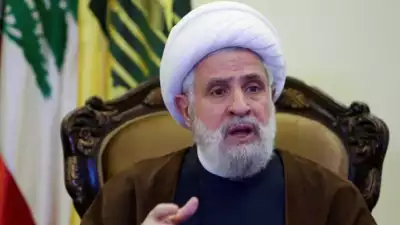
Pakistan Blasts: The explosion took place when people were gathering to mark Eid Miladun Nabi.
Karachi:
A powerful suicide blast ripped through a mosque in Pakistan’s restive Balochistan province on Friday, killing at least 52 people and injuring over 50 others gathered to celebrate Prophet Muhammad’s birthday, authorities said.
Hours later, another blast at a mosque in Khyber Pakhtunkhwa’s Hangu city killed at least three people and injured five others.
The blast in Balochistan occurred near Madina Mosque on Al Falah Road in the Mastung district. No group has claimed responsibility for the attack.
Mastung’s Deputy Superintendent of Police (DSP) Nawaz Gashkori, who was on duty for the rally, was among the deceased.
The explosion took place when people were gathering to mark Eid Miladun Nabi, the birth anniversary of Prophet Muhammad.
City Station House Officer (SHO) Mohammad Javed Lehri said the explosion was a “suicide blast” and that the bomber exploded himself next to DSP’s car.
The bomb attack came a day after the Counter Terrorism Department (CTD) killed a key Islamic State (ISIS) commander in the Mastung district.
Lehri said that the wounded are being shifted to a medical facility while an emergency has been imposed in the hospitals.
At least 52 people were killed and over 50 injured in the blast in Mastung, District Health Officer Rashid Muhammad Saeed said.
Some of the injured were in critical condition. Officials expressed concern that the number of casualties may increase.
Balochistan interim Information Minister Jan Achakzai said rescue teams have been dispatched to Mastung. He added the critically injured persons are being transferred to Quetta and that an emergency has been imposed in all the hospitals.
“The enemy wants to destroy religious tolerance and peace in Balochistan…,” Achakzai said.”The explosion is unbearable.” Caretaker Chief Minister Ali Mardan Domki has directed authorities to arrest those responsible for the blast.
“The perpetrators of the destruction do not deserve any leniency,” he said. “Those who target peaceful processions will be dealt with firmly.” Chief Minister (CM) Domki urged the people to unite against terrorism, adding that Islam was a religion of peace and “those who commit such heinous acts cannot be called Muslims”.
The caretaker CM also announced three days of mourning throughout the province over the tragic incident.
Interim Interior Minister Sarfraz Ahmed Bugti also strongly condemned the blast.
Stating that “terrorists have no faith or religion”, Bugti asserted that all resources were being put to use during the rescue operation. He added that no effort would be spared in treating the injured and that terrorist elements did not deserve any concession.
Meanwhile, Pakistan Muslim League-Nawaz (PML-N) President and former premier Shehbaz Sharif said that carrying out such a despicable act on an occasion marking the birth of the Holy Prophet is detestable now and in the hereafter.
He condemned the attack and offered condolences to the families of the deceased and injured.
Soon after the explosion in Balochistan, the Punjab police also said that its officers were performing security duties for Friday prayers at mosques across the province.
Meanwhile, the Karachi police said that Additional Inspector General Khadim Husain Rind has directed the police to remain “completely on high alert” in view of the Mastung blast.
He directed the policemen to tighten security arrangements regarding Eid-i-Miladun Nabi processions and Friday prayers across the city, as well as to monitor any unusual activities.
This is the second major blast that has terrorised Mastung over the last 15 days, Geo News reported.
Earlier this month, at least 11 people were injured in a blast in the same district.
Mastung has remained a target of terror attacks for the past several years with a major attack in July 2018 being one of the deadliest in the district’s history during which at least 128 people were killed, The Tehrik-i-Taliban Pakistan, which set up as an umbrella group of several terrorist outfits in 2007, called off a ceasefire with the federal government and ordered its terrorists to stage terrorist attacks across the country.
The group, which is believed to be close to al-Qaeda, has been blamed for several deadly attacks across Pakistan, including an attack on army headquarters in 2009, assaults on military bases, and the 2008 bombing of the Marriott Hotel in Islamabad.
In January, a Taliban suicide bomber blew himself up in a mosque packed with worshippers during afternoon prayers in Pakistan’s restive northwestern Peshawar city, killing over 100 people.
Last year, a similar attack inside a Shia mosque in the Kocha Risaldar area in the city killed 63 people.
(Except for the headline, this story has not been edited by NDTV staff and is published from a syndicated feed.)










